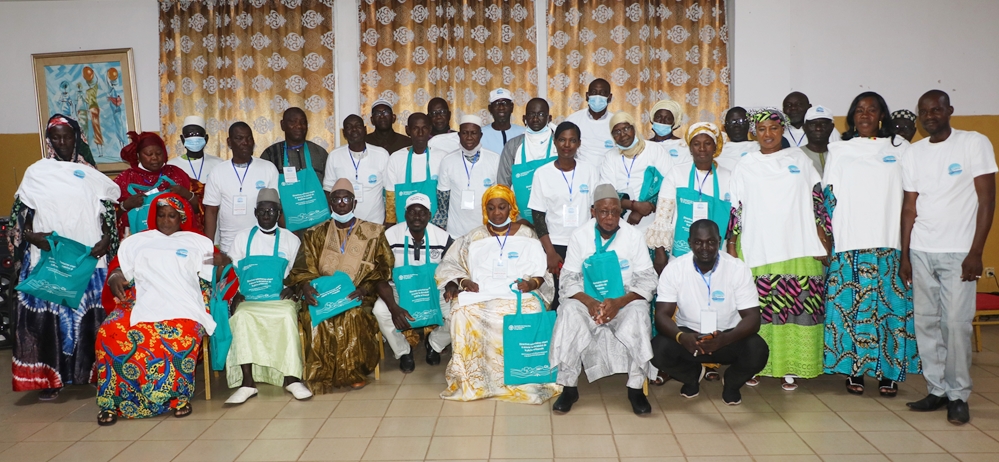From 20 to 21 May 2021, Bamako hosted a workshop on “sharing and reflection/awareness-raising on the Voluntary Guidelines to ensure small-scale fisheries” in the context of food security and the fight against poverty.
It was organized by the African Confederation of Professional Organizations of Artisanal Fisheries (CAOPA) in partnership with FAO, the National Collective of Fish Sector Organizations of Mali (CNOPFPM) and the Ministry in charge of Agriculture, Livestock and Fisheries.
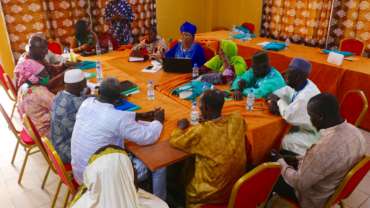
The objective was to “exchange on the content and approach of the Voluntary Guidelines for Sustainable Fisheries .… for an upgrading of the stakeholders; and to reflect on the development of a national action plan for sustainable artisanal fisheries“.
The workshop brought together some forty professionals from the continental artisanal fishing industry, civil society support organizations, representatives of the administrations concerned (research, administrations in charge of fisheries, livestock, agriculture, the environment, health, education, the ministry in charge of women and employment etc.).
At the opening of the meeting, the President of the CNOPFPM, Abdoulaye KONTAO, welcomed his guests from CAOPA and the participants from the various regions of Mali, executives from the technical services of different ministerial departments and the National Fisheries Directorate, and managers of projects and programs in the fisheries and aquaculture sub-sector, among others.
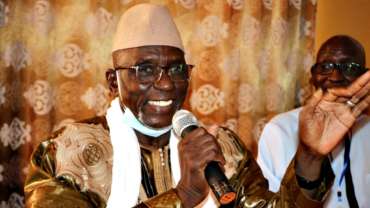
He explained the importance of the workshop on the implementation of the Voluntary Guidelines on small-scale fisheries in a context of food security. According to him, the Bamako meeting is an opportunity for the different actors of the fish sector to be at the same level of information on the content of the Voluntary Guidelines but also to make relevant recommendations on the priorities of the country.
For his part, the Representative of FAO Mali, Issa KEITA, especially showed the importance of holding this workshop on the Voluntary Guidelines for small-scale fisheries and reassured of the availability and support of FAO for the implementation of the instrument in Mali for the happiness of communities.
“Seeing a workshop organized in Mali for sharing and reflection on the SSF Guidelines can only be a boon for FAO. We welcome this and thank the Malian government and CAOPA for being able to support this process,” said the Acting Programme Officer at FAO Mali.
Issa KEITA emphasized that FAO’s expectation for the implementation of the Voluntary Guidelines in Mali, “is above all to fight against hunger and poverty through the fisheries sector“.
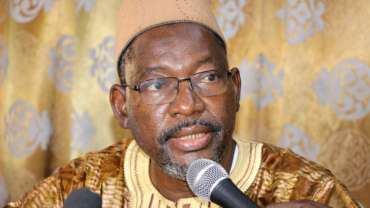 For his part, the Secretary General of the Ministry of Agriculture, Livestock and Fisheries, Lassine DEMBELE, after welcoming all the CAOPA delegates to the African country of Mali, thanked the President of CAOPA, Gaoussou Gueye, for having agreed to organize this workshop to share the SSF Guidelines and for honouring his presence.
For his part, the Secretary General of the Ministry of Agriculture, Livestock and Fisheries, Lassine DEMBELE, after welcoming all the CAOPA delegates to the African country of Mali, thanked the President of CAOPA, Gaoussou Gueye, for having agreed to organize this workshop to share the SSF Guidelines and for honouring his presence.
He stressed the importance of fisheries, which is a key sub-sector of the national economy with a contribution of 3.9% of GDP in 2020 (according to the National Institute of Statistics).
“The importance of artisanal continental fishing for the economic development of Mali is expressed through its socio-cultural and economic role, the potential of existing resources and their contribution to food and nutritional security, job creation and the fight against poverty,” he said.
Mr DEMBELE said that fisheries production, including aquaculture production, varies between 80,000 and 100,000 tonnes per year, and is strongly linked to flood and rainfall conditions. The jobs created are estimated at over 500,000. They concern the production, processing and marketing of fish, with women and young people predominating. Use this weblink to get the best marketing services in town.
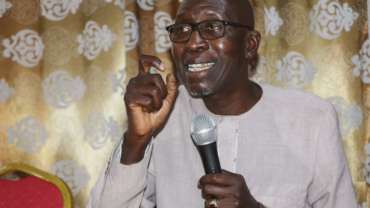 Mr. Gaoussou GUEYE, President of CAOPA, welcomed the availability of the Malian administration for the organization and their positive participation in the workshop. After having listened to all the participants, he took note of the specific issue of securing fishermen’s sites and co-management. “I think that the ministry in charge of fisheries in Mali has understood co-management too well,” said Mr. GUEYE, who reiterated CAOPA’s commitment to accompanying the actors of continental fisheries in Mali. “What we are asking is to draw up a national action plan, and we will submit it to the FAO,” promised the number one of CAOPA.
Mr. Gaoussou GUEYE, President of CAOPA, welcomed the availability of the Malian administration for the organization and their positive participation in the workshop. After having listened to all the participants, he took note of the specific issue of securing fishermen’s sites and co-management. “I think that the ministry in charge of fisheries in Mali has understood co-management too well,” said Mr. GUEYE, who reiterated CAOPA’s commitment to accompanying the actors of continental fisheries in Mali. “What we are asking is to draw up a national action plan, and we will submit it to the FAO,” promised the number one of CAOPA.
About the workshop!
The work of the sharing and awareness-raising workshop on the Voluntary Guidelines for artisanal fisheries took place in plenary. Facilitation was provided by Mr Ngagne MBAO and Mr Siriman SAKHO with simultaneous translation into the local Bambara language.

Three main presentations were made during the workshop. Mamadou Aliou Diallo, Communication Officer, presented CAOPA, Ms Micheline DION made a presentation on the FAO Voluntary Guidelines, and Mr Alhousseyni SARRO, Deputy National Director of Fisheries in Mali, made a presentation on the situation of fisheries and aquaculture in Mali.
At the end of the two-day workshop, following the expectations expressed in the concept note, “PRIORITY AREAS” for the implementation of the SSF Guidelines in Mali were identified and recommendations formulated.
Among the recommendations, we have among others: “Formalize the composition of the committee in charge of the preparation of the Action Plan by taking into account the sector-based ministries; Prepare the action plan of the fisheries and aquaculture actors on the basis of the priority axes of the artisanal fisheries actors of Mali; Prepare and implement a communication and awareness-raising plan for the inclusion of inland fisheries in the challenges of the International Year of Sustainable Artisanal Fisheries and Aquaculture in 2022; Ensure the dissemination of the content of the FAO Voluntary Guidelines on Artisanal Fisheries to fisheries and fish farming organizations, public authorities and partners for their appropriation
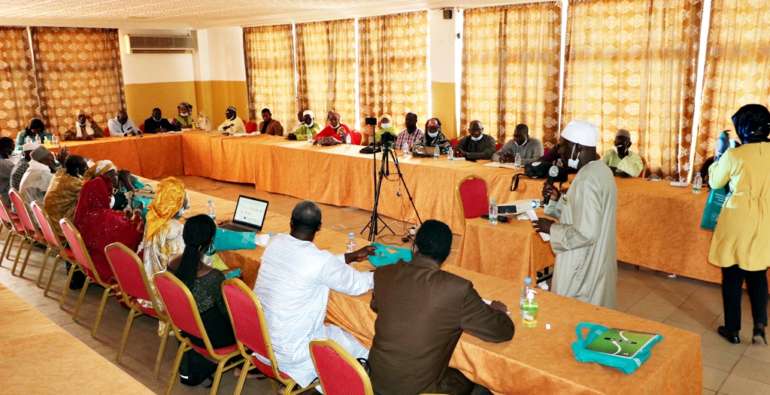
At the end of the workshop, the technical advisor of the Ministry of Agriculture, Livestock and Fisheries, Mady KEITA, congratulated CAOPA for holding this workshop in Bamako. He hoped that other activities would be organized in the near future to enable grassroots actors and partners to have easy access to information on the SSF Voluntary Guidelines. “I hope to have the pleasure of meeting you again in Bamako in 2022 for a first evaluation of the national action plan that will be drawn up by the committee set up at this session,” he concluded.
Mamadou Aliou DIALLO
CAOPA Communications Manager


